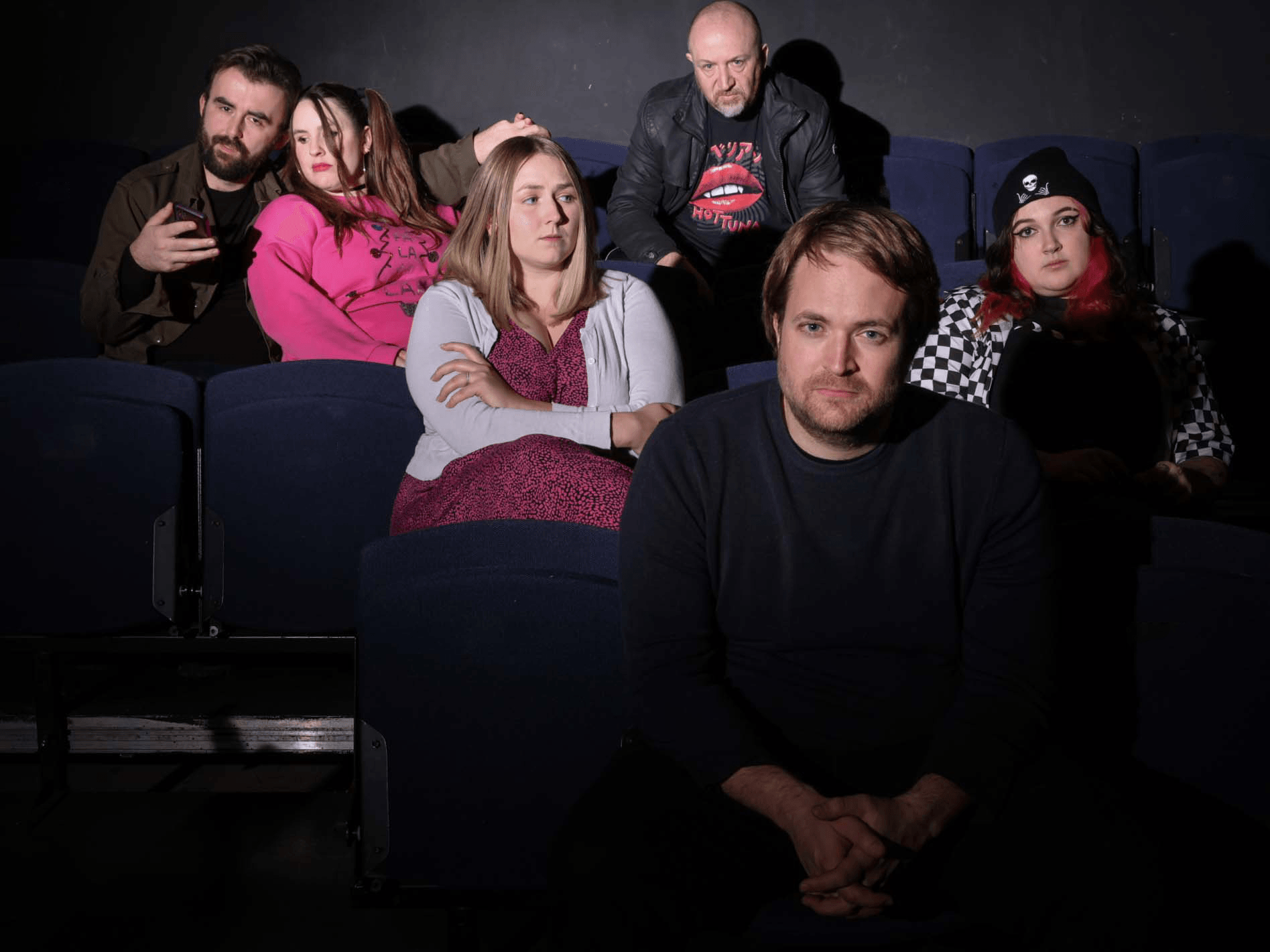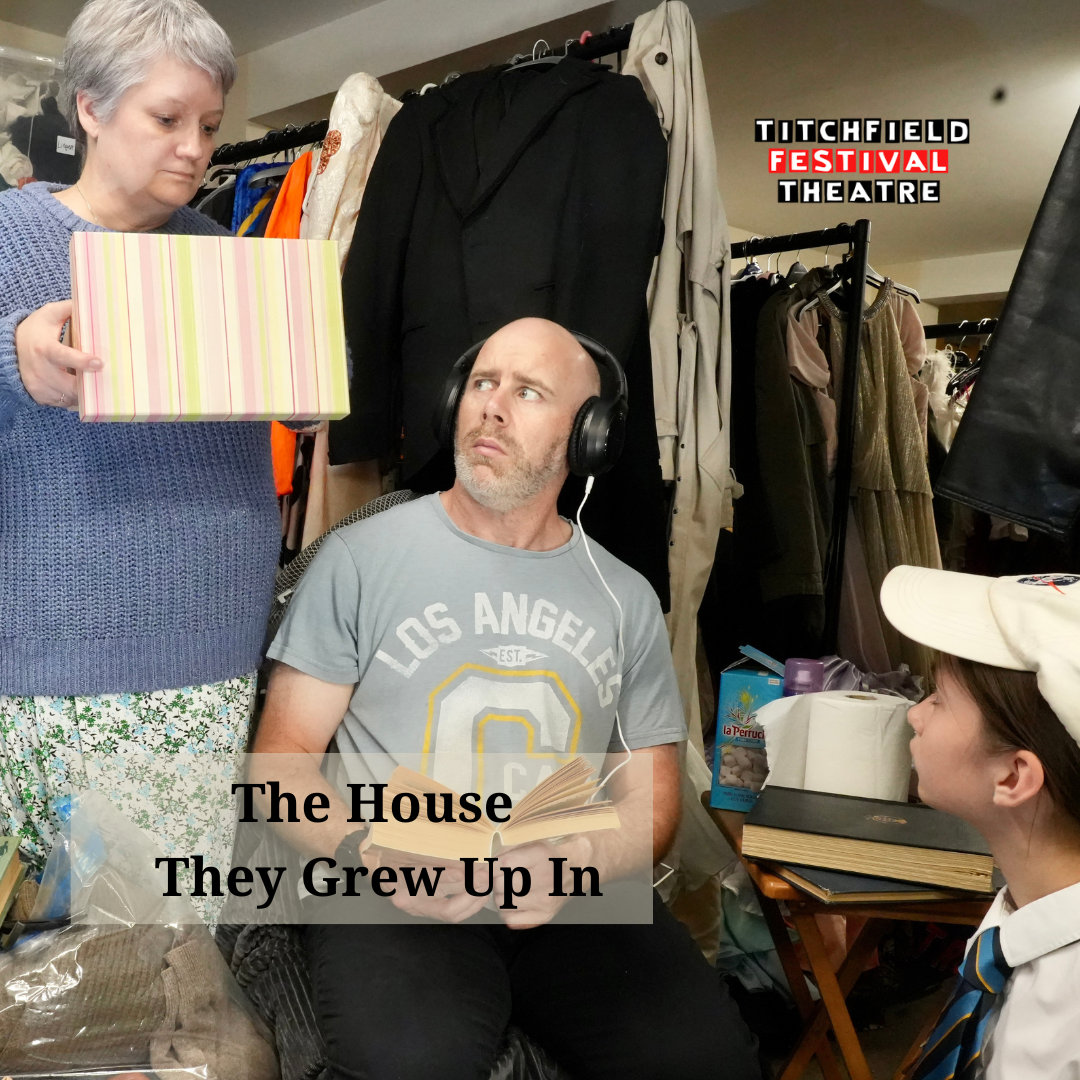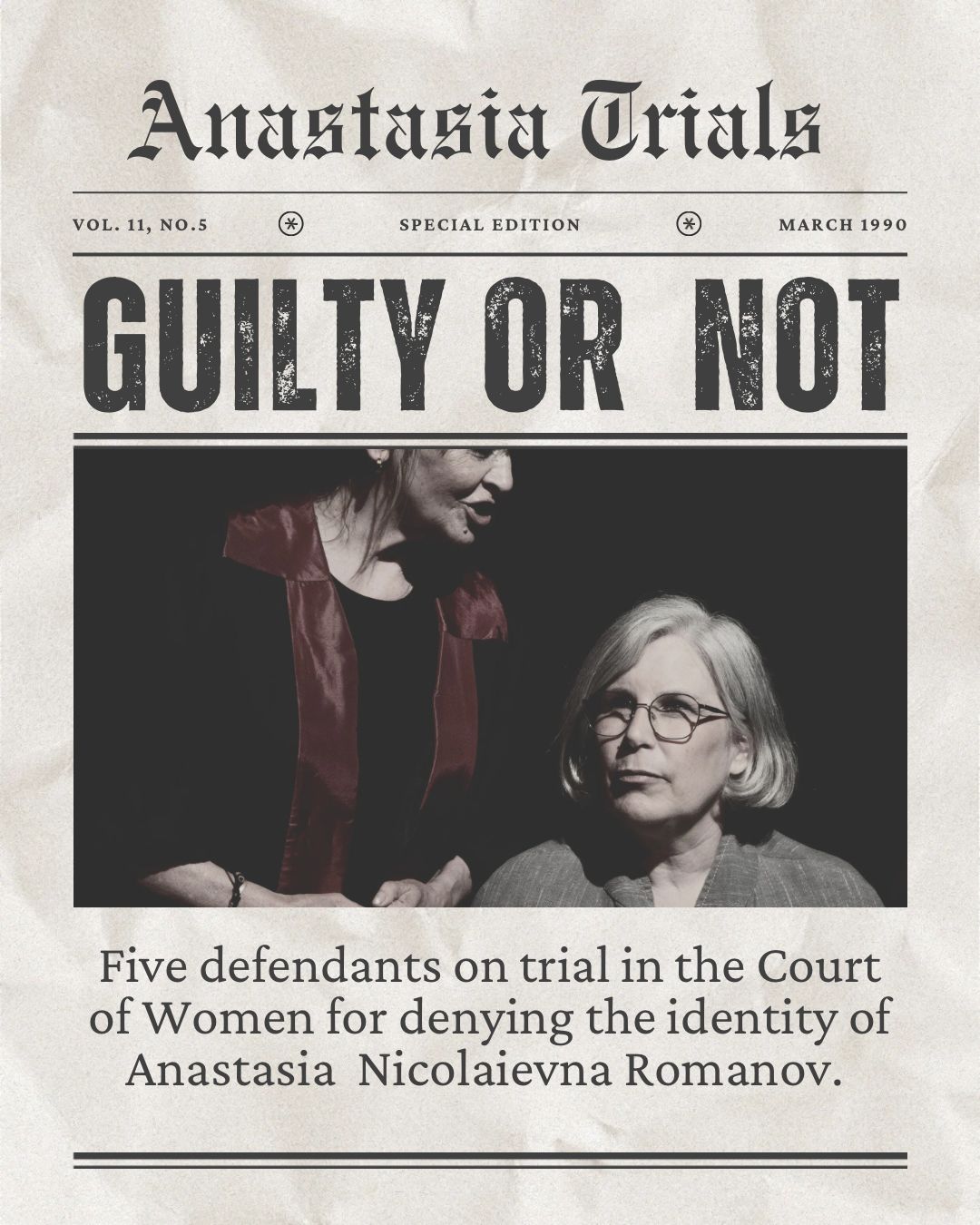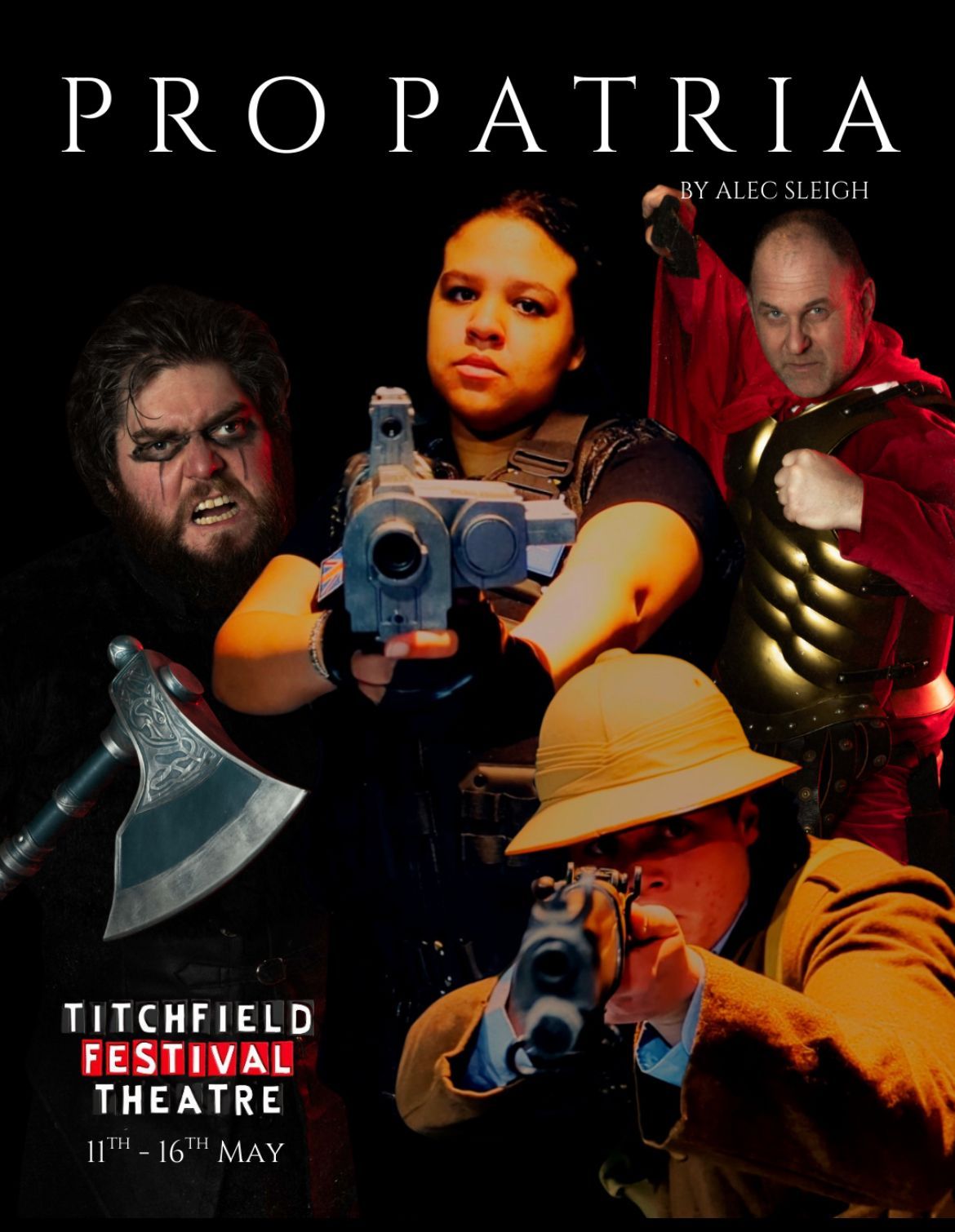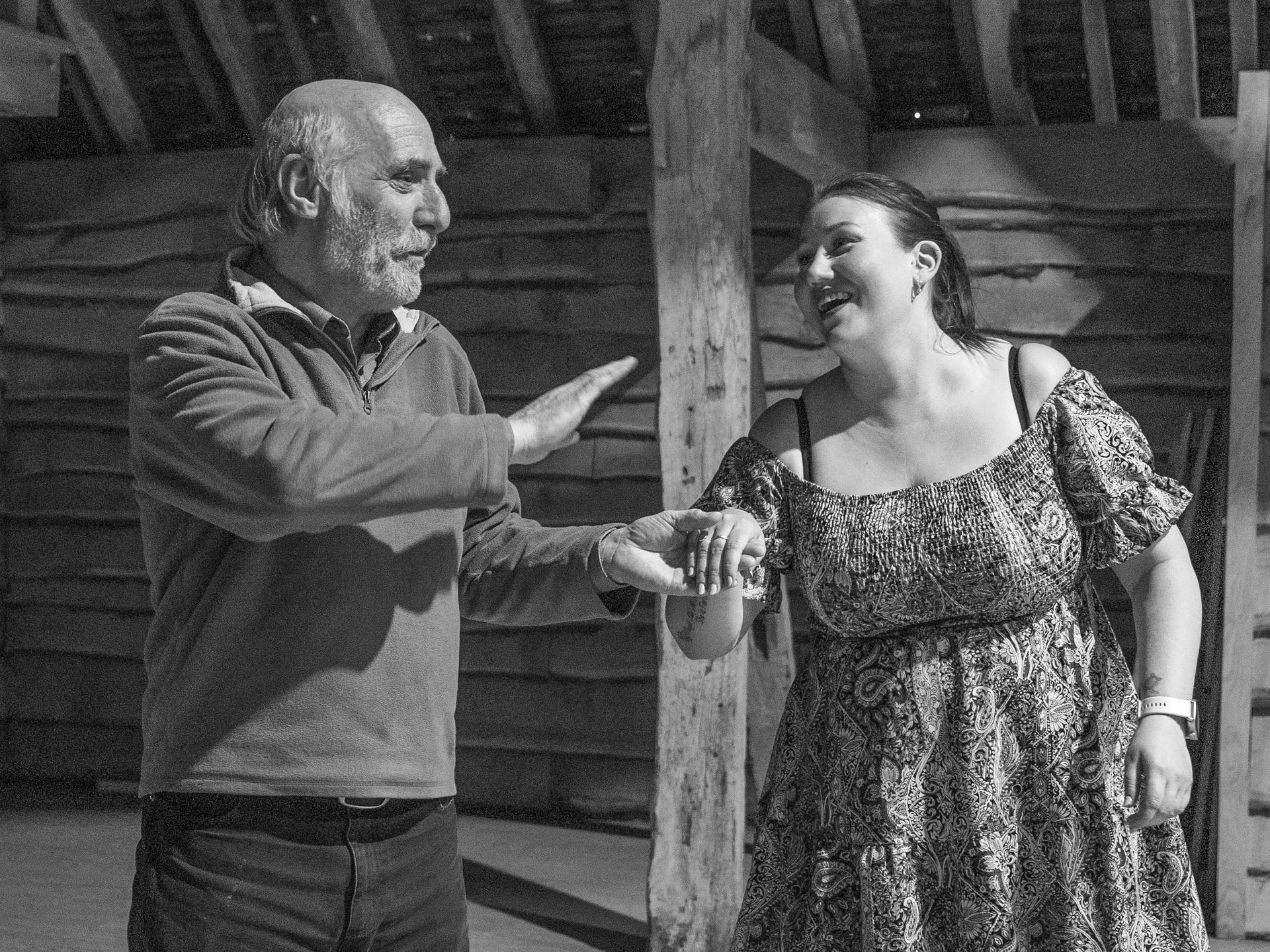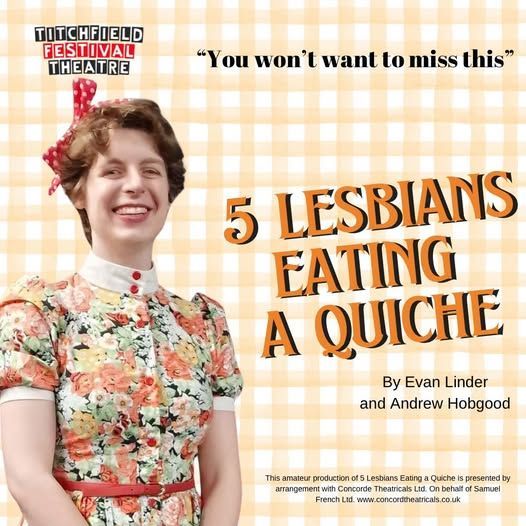A Stranger in our House is the first play in Titchfield Festival Theatre’s 2023 New Play Season. An interview with the writer and director, Bradley Barlow

A Stranger in our House is a story about a married couple struggling to make ends meet take in a lodger, a new arrival in town. The same lodger who is battling with visions of a dead child and bears a striking resemblance to a recently released prisoner, his arrival causes a stir in the local community and exposes cracks in the family’s relationships. A Stranger in our House is a blistering exploration of guilt, justice and modern Britain - asking how well do you really know the people in your life?
Bradley Barlow is the writer and director of A Stranger in our House, and we talk to Bradley about what inspired him to write the play and his experience directing his first ever production for Titchfield Festival Theatre.
Simon: I have had a look at your website and you obviously have a wide range of experience in playwriting. What first persuaded/encouraged you to write?
Bradley: I’ve always been very creative and creating theatre has always been my main passion. A lot of my training focused on devising and improvising but I reached a point of wanting to tell stories in a more personal, controlled way, so I turned my focus to writing. It’s been a long journey crafting my voice as well as finding the purpose of what I want to say.
I like my plays to make people think - there’s nothing wrong at all with something that is lighthearted and frivolous but I try to challenge people’s way of thinking. A revival performance of my debut play won an Accolade of Excellence from NODA and it definitely spurred me on to keep writing and developing work. A Stranger in our House is my seventh play that I’ve written and hopefully I don’t sound arrogant when I say I think it’s probably my best so far.
Simon: Is this the first play that you have written and had performed at TFT?
Bradley: This is indeed my first play I've written and directed at TFT. My most recent play was The Legend of Grimm's Tales in June with a cast made up of professional and local performers.
Simon: What are the key themes you feel will resonate with people?
Bradley: I’ve always been fascinated in what causes moral panic and outrage in society and A Stranger in our House acts as a a cautionary tale of sorts, bubbling up in a pressure cooker in a drive to discover someone’s true identity.
I was 11 years old when the murder of two-year-old James Bulger hit the headlines, the nation shocked as it was revealed his life was taken by two young boys who were the same age as me. The media scrutiny was intense, their mugshots plastered on every front page, the vitriol from the general public showing no sign of abating.
As the years passed, the tabloids led the charge in campaigns to outlaw ‘video nasties’ they held responsible for the murder as well as weeding out the sex offenders in our midsts. In 2000, a Newport-based paediatrician was driven from her home when self-styled vigilantes confused her professional title. Similarly, five families who were wrongly identified as harbouring sex offenders were forced to flee their homes in the Paulsgrove estate in Portsmouth as violence flared. With the rise of social media, so-called paedophile hunters have made a name for themselves by exposing alleged offenders to their legions of followers, unsupported by the police.
The death of a child, especially one so brutal, evokes a primal rage in a lot of people. That anger has never gone away and in the years since his release, photos alleging to be of one of Bulger’s killers have made their way on to social media but without any form of verification, potentially ruining an innocent person’s life.
Are the actions of vigilantes ever justified? Should we have the right to take the law into our own hands? And what happens when it all goes wrong?
A Stranger in our House doesn’t propose to have the answers, but hopefully will get the audience thinking and talking about the consequences of these various actions.
Simon: Why do you think people will enjoy the play?
Bradley: I think everyone can resonate with wanting a sense of truth and the answers to their questions. But there’s also a sense of guilt for a few of the characters, wanting to be understood or to change their lives in some way, a desire for recognition, and a desire to be loved.
Although we deal with some quite dark and sensitive topics, there’s a lot of humour to be found. We’ve also got the makings of a love story too. But ultimately, if you’re a fan of a Netflix thriller then hopefully the audience will most enjoy trying to find out if Simon Jones really is who he claims to be.
Please note: This play contains strong language and scenes of an adult nature.
For more information including booking tickets, please go to http://titchfieldfestivaltheatre.com/ or contact our Box Office on 0333 666 3366.
Bradley Barlow was talking to Simon Frost.


